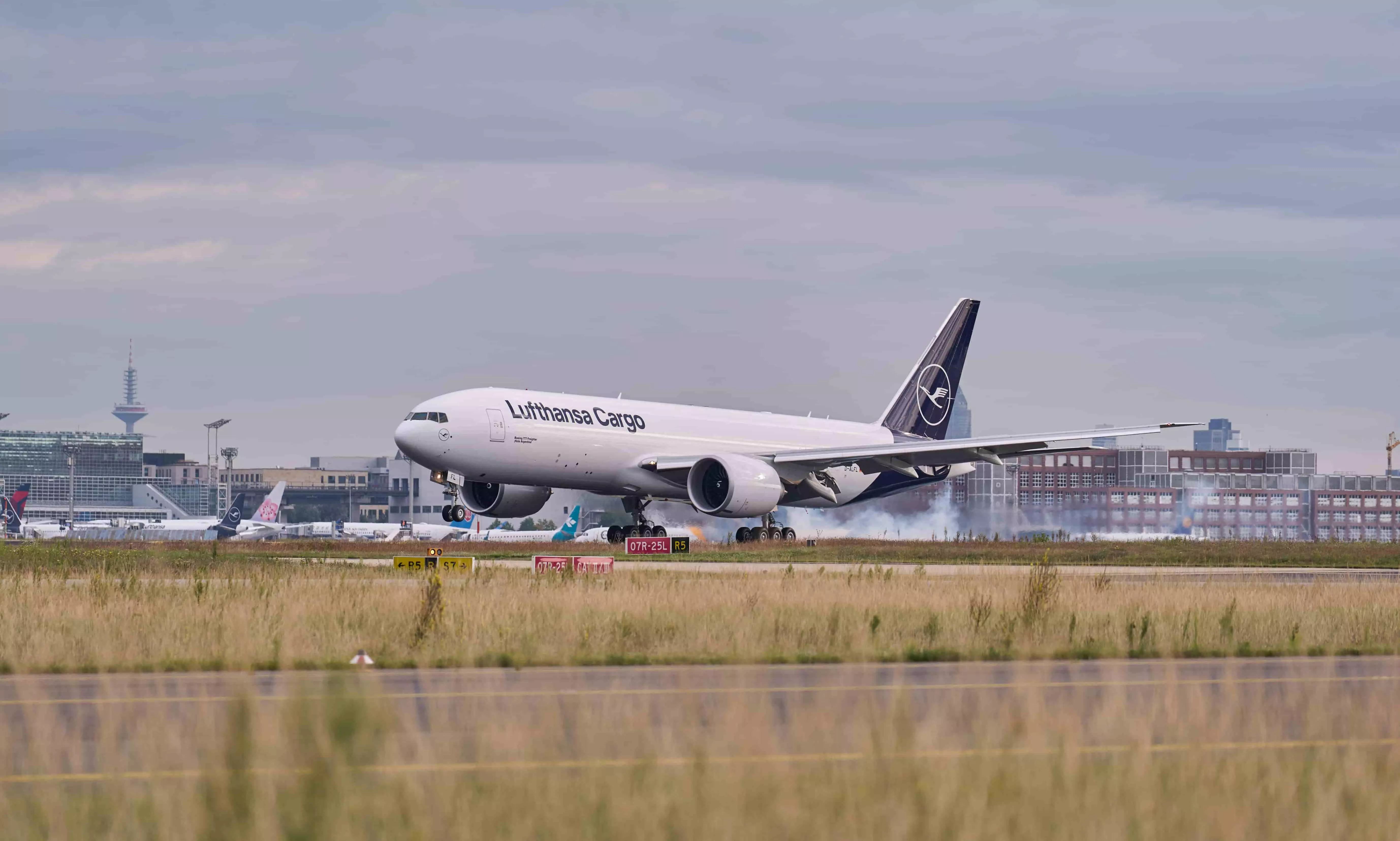Lufthansa Cargo, Swiss WorldCargo to add SAF costs in surcharge
From January 1, 2025, SAF prices will be monitored via the price index of the Airfreight Surcharge.

Lufthansa Cargo will include the rising costs of sustainable aviation fuel (SAF) due to regulatory environmental requirements in the price index of its existing Airfreight Surcharge (ASC) w.e.f January 1, 2025.
"For departures from European Union (EU) countries, a mandatory SAF blending rate of initially two percent will apply from 2025. Countries outside the EU are also planning to introduce or have already introduced mandatory SAF blends," says an official release.
The Indian government, for example, is working on a mandatory quota of one to five percent from 2027. Singapore is requiring airlines to add one percent SAF to flights departing from Changi Airport starting in 2026. The target is three to five percent by 2030. By then, the EU will require six percent, and the U.K. and Japan will require ten percent, the release added.
"Significantly more use of SAF is only possible if its supply volumes and availability increase substantially as quickly as possible and the prices fall accordingly. Biogenic SAF is currently available in small quantities and 3-5 times more expensive than fossil fuel. A targeted policy strategy is needed to be able to meet the volumes for the blending rates and beyond."
Swiss WorldCargo, a part of the Lufthansa Group, will also include the rising costs of SAF in the price index of its existing ASC, says an official release.
How does Airfreight Surcharge work?
The ASC, which has been in effect since 2015, is a combined surcharge to cover additional costs that cannot be influenced by Lufthansa Cargo, the release added. "So far, these have mainly been rising fuel, currency and security prices. The flexible system works as follows: Lufthansa Cargo monitors the development of additional costs using a standardised index calculation system. If the indexed costs require an upward or downward adjustment to the ASC, the cargo carrier will review and determine the appropriate adjustment. The ASC is added to the net price of each shipment. In some countries, regulations do not allow surcharges or only allow them to be applied in other ways. This may result in different surcharge levels from country to country."
By 2030, Lufthansa Cargo aims to halve its net CO₂ emissions compared to 2019 through reduction and compensation measures, and is relying in particular on a state-of-the-art fleet, the use of sustainable aviation fuels, the continuous optimisation of flight operations and optional offers to make the transportation of cargo more sustainable, the release added.
Together with the Lufthansa Group, SWISS and Swiss WorldCargo aim to achieve a neutral CO2 balance by 2050 and to halve net CO2 emissions by 2030 compared to 2019.



